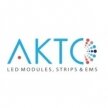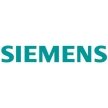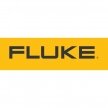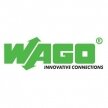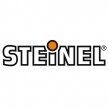-
Product Catalog
- Security and Surveillance Systems
- Automatic Circuit Breakers for Direct Current (DC) Circuits with Integrated Overload, Short-Circuit, and Voltage Stabilization Protection Functions
- Lighting with the help of electrical energy
- Automation and Control Systems
- Sealing profiles | rubber | gaskets | strips
- Inflatable Liquid Storage Tanks | Reservoirs | Bladders
- Inflatable rubber plugs for sealing high-pressure plumbing pipes
-
Electrical distribution and installation
- Electrical power | power cables | wires with copper conductors
- Electrical Energy Supply | Distribution Panels | Boxes | Accessories
- Smart Automated Products | Control | Transmission | Detection
- Modular equipment installed in electrical distribution boxes | panels
- Smart electrical network analyzers
- Reliable power management | stabilization | control | uninterrupted supply
- Fuse holder blocks
- Fuse disconnectors
- Fuses
- Electrical installation components
- For domestic | professional use Extension cords | power supply extensions
- Industrial | domestic socket outlets | plugs | adapters for electricity supply
- High Voltage Equipment | Components 6kV | 10kV | 12kV | 20kV
- Underground Power Transmission | Overhead Power Lines
- Surge Protection and Lightning Protection
- Solar Energy Generation and Management Equipment
- HVAC control solutions for heating and ventilation.
- Special products and accessories
- Other products
- Safety tools
- Quality used products
Fuse-links NH1C
-
NH1C fuse-links are specialized electrical devices designed to protect electrical systems from overloads and short circuits. These fuses belong to the NH (fuse-link) series and are widely used in industrial, commercial, and residential buildings where effective protection against potential failures is required.
-
Read more
Key Features:
Construction: NH1C fuse-links have a cylindrical shape and metal contacts, allowing them to be easily installed in specialized holders. Their design enables efficient interruption of current when faults occur, ensuring a safe power supply.
Rated Current: NH1C fuse-links are available in various rated currents, typically ranging from 16A to 125A. This allows users to select the most suitable option based on specific electrical energy needs.
Protection Features: These fuse-links effectively protect equipment from damage by interrupting the power supply when the current exceeds a set threshold. Additionally, NH1C fuse-links can be designed with fast-action features that allow for quick responses to faults.
Materials: NH1C fuse-links are often made from high-quality materials such as copper and ceramic casing, ensuring durability and resistance to high temperatures.
Labeling: Each NH1C fuse-link is clearly marked with the rated current and other important parameters, making it easy to identify and select the appropriate fuses.
Areas of Use:
Industry: NH1C fuse-links are widely used in manufacturing equipment such as motors, transformers, and other high-power devices, ensuring that these devices are protected from potential faults.
Energy Companies: Used in electrical grids and power generation stations to ensure stability and quality of power supply.
Commercial Spaces: Fuse-links are used in the electrical systems of offices and shopping centers to ensure reliable power supply.
Advantages:
Reliability: NH1C fuse-links provide high reliability and stability even under harsh operating conditions, such as high temperatures and humidity.
Fast Operation: These fuse-links react quickly to faults, reducing the risk of potential losses and protecting electrical systems.
Versatility: NH1C fuse-links are tailored for different rated currents, allowing them to be used across a wide range of applications.
Disadvantages:
Cost: While NH1C fuse-links are effective, some specialized models may be more expensive than standard fuses.
Technical Knowledge Required: Proper selection and installation of fuses may require certain knowledge of electrical systems.
NH1C fuse-links are essential components that ensure safety and efficiency in electrical systems. They help protect equipment from hazardous situations, reduce the risk of failures, and contribute to the long-term reliability of electrical systems. Properly selected and installed NH1C fuse-links are crucial in any electrical network, ensuring stability and safety.
No items found.
US IN SOCIAL NETWORKS

